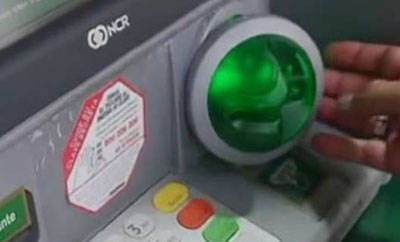Chilean investigative police have arrested three Colombians allegedly dedicated to credit card cloning, further evidence of the growing problems of identity theft and technology-based crime in the region.
Police from the Criminal Investigation Department (OS-9) arrested three Colombian nationals at a Santiago bank after receiving a tip-off from security guards. The suspects had apparently installed a “skimmer” in a bank ATM earlier that day — a device that reads the magnetic strips or chips on bank cards to access confidential account information, allowing the card to later be duplicated. At the time of arrest, the suspects were carrying bank cards and skimmers, reported Terra.
Following the arrests, police searched suspects’ residences, where they found 42 bank cards, at least 10 card-skimming devices ready for distribution and related equipment, including micro-cameras, along with over $6,000 in cash.
Based on the quantity of items found, police believe the group was a major distributor of skimmers to card duplicators in Chile, where reports of card fraud approximately tripled between 2010 and 2012.
InSight Crime Analysis
Skimmers have long been a popular tool for criminals around the world. However, skimming is just one example of the use of technology for criminal purposes in Latin America. Cyber crime is also a growing sector and “phishing” — illegally obtaining personal information on the internet — costs Latin American banks an estimated $93 million a year. In recent years, Mexico has emerged as a world leader in cyber crime, while Brazil and Argentina have also been severely affected by the problem.
Crime that utilizes technology can be highly lucrative and difficult to trace, making it an attractive proposition for criminals. While there is little evidence that this has become a major revenue source for large scale criminal groups, there have been reports of Mexican drug cartels recruiting hackers for cyber crime operations.

